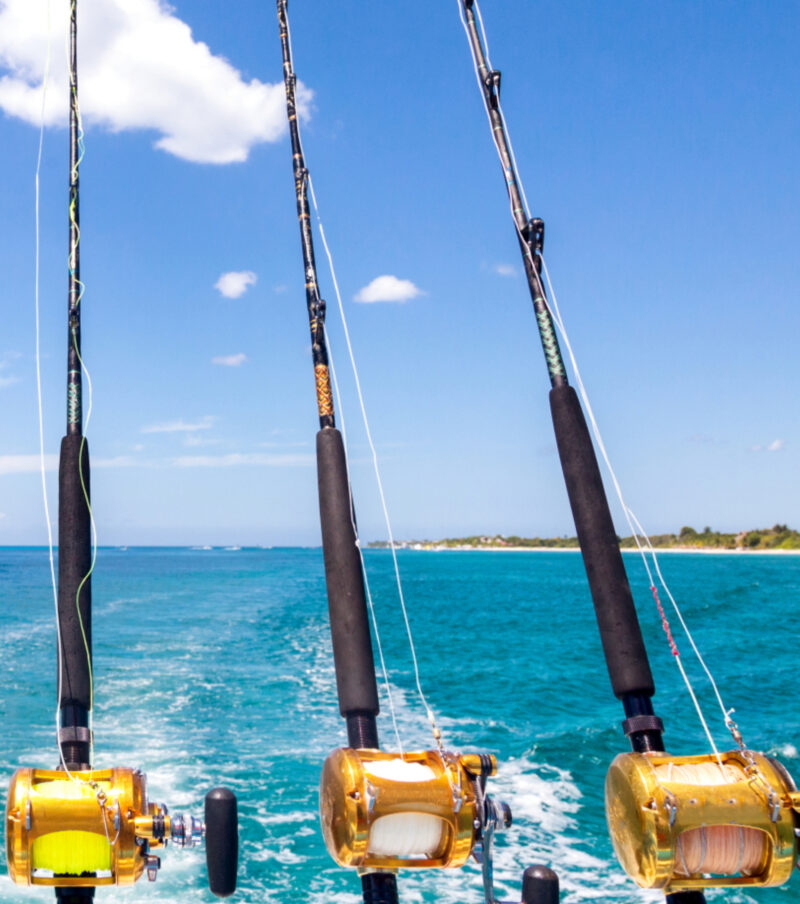Customs
Rocky Point (Puerto Penasco): Customs
Crossing the border into Mexico can be an exciting and rewarding experience, but it’s important to be aware of the rules and regulations before embarking on your journey. The following information will provide valuable insight into the process of crossing the border by vehicle and the requirements that need to be met before entering Mexico.
Passport Requirements It is essential to have a valid passport when crossing the border into Mexico. This document is required to re-enter the United States, and without it, you may be denied entry. It is recommended to review the passport requirements before leaving for your trip. Useful links such as “Visitors Arriving by land to Mexico” can be found on official government websites.
Vehicle Entry Inspections Similar to crossing into Mexico on foot, the green-light, red-light system is employed for random vehicle searches. When you arrive at the border, you will be prompted to choose a lane. If your exemptions do not exceed the permitted limits, use the “Nothing to Declare Lane.” If you are carrying goods worth more than the personal or family exemptions or the amount exceeds the allowed limit in your personal luggage, please use the “Self-Declaration Lane.”
If you have chosen the “Nothing to Declare Lane”: A green light indicates that you can drive through without inspection. A red light indicates that your luggage will be inspected, and you will need to pull your vehicle over to the center for inspection of its contents. If you mistakenly choose the wrong lane, you may approach a Customs Inspector and ask for a classification and appraisal of your goods for the corresponding payment of taxes and duties.
What to Expect When Crossing the Border?
Upon arrival at the border, a U.S. Customs officer may ask about your destination and what you have with you. They may then pass you through or conduct a quick visual search of your vehicle’s passenger areas, trunk, etc. If you are in a large car, an RV, or towing recreational vehicles, expect to get pulled over and inspected. Some standard questions they might ask are if you have more than $10,000 in cash or if you carry weapons or drugs. Then again, they may take one look at you and wave you through.
If you are importing items over the legal limit, you will be charged a fine by Mexican Customs, which can be 30% or more to twice the item’s value. You will need to pull over to the left parking area and walk up to the tax clerk’s window to pay the tax. Always carry Mexican auto insurance on your vehicle and have proof of ownership of some sort, such as vehicle registration paperwork.
What about Pets When Crossing the Border?
If you plan on bringing your pets with you to Mexico, it is essential to have a valid U.S. Veterinarian Health Certificate Form and Rabies Certificate #77043, not more than six months old. While many people say that they have never had a problem bringing their pets back and forth across the border, it’s recommended to obtain these certificates from a local vet to avoid any potential issues. Keep in mind that fees may apply if you are bringing more than three pets into Mexico, and bringing dog food is prohibited. If you want to read more about bringing pets into Mexico, please visit the official government website for more information.
Duty Free Items
If you’re planning a trip to Mexico, it’s important to be aware of the customs regulations for duty-free items. The good news is that travelers are allowed to bring in $75 USD worth of new merchandise per person without having to pay any tax. However, there are some rules and limitations that you should know before packing your bags.
The merchandise has to be in the same vehicle driven by the person(s) declaring it. So, if you’re traveling with friends or family, make sure that everyone’s duty-free items are kept together in the same vehicle.
Here are the duty-free items you can bring into Mexico:
- Items for personal use, such as clothing, shoes, and toiletries, according to the length of your stay.
- One photographic or motion video camera, including a power source and rolls of film or video cassettes. Please note that professional equipment is not allowed.
- Books and magazines.
- One used sports article or piece of equipment for individual use, which can be transported by one person.
- Two cartons of cigarettes or 100 cigars.
- Three liters (approximately three quarts) of wine or alcohol (including beer) per person if the passenger is an adult (21 or older).
- Medicine for personal use, with your prescription.
- Suitcases to transport your items.
If you’re legally a resident of another country, in addition to the items listed above, you may also bring the following items:
- Binoculars
- Camping equipment
- Portable television, radio, and 20 tapes
- Typewriter or laptop computer
- Five used toys if the passenger is a child
- Fishing tackle
- Pair of skis
- Two tennis rackets
- A non-motorized boat up to 5 ½ meters in length or a surfboard with or without a sail.
If you’re traveling by camper, trailer, or motor-home, you may also bring in:
- VCR
- Bicycle with or without a motor
- Household linens
- Kitchen utensils
- Living room and bedroom furniture
Firearms in Mexico
Mexico has strict laws when it comes to firearms. In general, firearms are not allowed to be brought into the country, with a few exceptions. Hunters are permitted to bring firearms with proper clearance and paperwork, but they must follow specific regulations. The possession of illegal firearms can carry a penalty of 5 to 30 years in prison, so it’s important to understand the rules before attempting to bring a firearm into Mexico.
Importing Merchandise
If you plan on bringing merchandise with you into Mexico, there are specific regulations you must follow. Each person is allowed to bring in $75 USD worth of new merchandise without needing to declare it or pay taxes. However, if you have new merchandise exceeding $75 USD per person, you will need to declare it and pay the necessary taxes before crossing into Mexico.
To declare your merchandise, turn left as you cross the border, just beyond the chainlink fence. Park in the designated spot and go into the Aduana Building in the middle of the two lanes. If you have more than $1,000 USD worth of new merchandise per vehicle, you will need the assistance of a customs broker. Customs brokers are located on the Mexican side of the border, and you can park on the U.S. side and walk across to one of their offices.
Auto Permits
Auto permits are not required for vacation or tourist travel within the ‘Free Zone’ of Puerto Peñasco/Sonoyta or within the ‘Border Zone’, which typically extends up to 20 kilometers into Mexico. However, if you plan on traveling further into Mexico, you will need to obtain an auto permit. The process for obtaining an auto permit can be lengthy, so it’s important to plan ahead.
What to Do if You Encounter Problems or Harassment at the Border
If you encounter any problems or harassment from Mexican border officials, it’s important to document their name, badge/employee number, and report it to ‘The Federal Office of Investigations’ at 91-800-00-148.
Border Hours and Wait Times
The first thing to keep in mind when returning to the U.S. is the border crossing hours. The border is closed from 8pm to 6 am, so it’s essential to plan your trip accordingly. Keep in mind that seasonal, holiday, and/or spring break traffic can bump crossing waits into several hours. Additionally, labor disputes, trucker strikes, etc. can also snarl up the border crossings. Therefore, it’s advisable to get there with some time to spare, especially during peak hours.
Re-entry and Declarations
When you re-enter, you’ll be asked what you purchased. It’s important to declare everything you are bringing back from Mexico. Anybody who says ‘nothing’ is almost automatically searched. Failure to declare items can lead to serious penalties, including fines and confiscation of goods. It’s always better to be honest and transparent with the authorities, and to declare all your purchases.
Vehicle Searches
Authorities have the right to search your vehicle. Don’t give them a hard time. Again, if you’re driving a high-profile vehicle such as a van, RV, truck, or SUV, you are more likely to be searched. It’s important to cooperate with the authorities and to answer their questions truthfully. Refusing to comply can lead to further delays and potential legal trouble.
Citizenship and Identification
Be sure all occupants in your vehicle can prove U.S. Citizenship or legal entry into the U.S. You are technically required to have proof of citizenship – and a US driver’s license is NOT proof of citizenship. You should carry a U.S. passport, a birth certificate, or a voter’s registration card — as well as a photo ID, such as your driver’s license. Please review passport requirements. It’s crucial to have all necessary documentation in order to avoid any unnecessary delays or complications.
Big Purchases and Receipts
If you’re planning on making any big-ticket purchases, be sure to keep the receipts. You may be required to show them to customs officials upon your return to the U.S. This is particularly important if you’re buying high-value items such as jewelry, electronics, or other expensive goods.
Liquor and Smokes
You are allowed to enter free of duty any purchases with a combined value of up to $400 per 30 day time period. Every visitor over 21 years old may bring into the United States, duty-free, the following:
- 3 liters of wine or hard liquor
- 200 cigarettes, OR 100 cigars (but not from Cuba), OR 3 pounds of smoking tobacco
- $100 worth of gifts
And while we’re on the subject of cigars, if U.S. Customs catches you with Cuban cigars, they’re taking them. They might fine you. They’re gonna yell at you, that’s for sure. We hereby refer you to this site for some more info on the subject, in that site, they get into the specific details of how Cuban cigars are distinguished from non-Cuban cigars. Please follow the rules; they are enforced.
prescription
Buying prescription drugs in Mexico and Canada has become an increasingly popular option for U.S. citizens looking for more affordable healthcare options. However, there are certain rules and regulations that must be followed when obtaining prescription drugs from foreign countries.
In Mexico, it is necessary to have a U.S. prescription for any prescription drugs you pick up, although the prescription is often not required to actually purchase the drugs. There may also be limitations on the amount of drugs you can purchase, typically no more than a 3-month supply. It is important to note that the rules and legislation regarding prescription drugs in Mexico can change frequently, so it is important to stay informed.
When it comes to crossing the border back into the United States, U.S. Customs agents are aware of both legal and illegal prescription drugs and will enforce current laws strictly. While it is unlikely that you will encounter any issues if you are only picking up a small amount of a medication like Retin-A, if you are carrying large quantities of drugs like Valium or Viagra, you can expect to be asked for your U.S. prescription. Ultimately, it is up to the discretion of U.S. Customs agents to allow the transport of prescription drugs across the border.
For more detailed information on obtaining prescriptions in Mexico, the University of Arizona Department of Pediatrics has a comprehensive guide, and the U.S. Customs website provides up-to-date details on the current laws and regulations.
Illegal Items and Their Consequences
Desert/Marine Wildlife or Plants
The United States prohibits the importation of certain types of plants and wildlife, particularly those that are considered endangered or threatened species. This includes items such as cacti, seashells, coral, and turtle shells. Violating these regulations can result in fines and confiscation of the items, and in some cases, criminal charges.
Freon-12
Freon-12 is a type of refrigerant that has been banned in the United States due to its harmful effects on the environment. Bringing it into the country can result in fines and confiscation of the product.
Coral/Whale skeleton parts
The importation of coral and whale skeleton parts is prohibited in the United States. Violating these regulations can result in fines and confiscation of the items.
Plants
Certain types of plants, including fruits and vegetables, are subject to regulations by the United States Department of Agriculture (USDA). Violating these regulations can result in fines and confiscation of the items.
Pork products
Bringing pork products into the United States from certain countries can result in fines and confiscation of the items due to the risk of transmitting diseases such as African swine fever.
Eggs/Potatoes
Eggs and potatoes are also subject to USDA regulations. Violating these regulations can result in fines and confiscation of the items.
Avocados (with seeds/pits) or mangos
Bringing avocados or mangos with seeds or pits into the United States is prohibited due to the risk of introducing pests and diseases. Violating these regulations can result in fines and confiscation of the items.
Pork/Ham
Bringing pork or ham products into the United States from certain countries can result in fines and confiscation of the items due to the risk of transmitting diseases such as foot-and-mouth disease.
Birds
Bringing birds, including feathers and eggs, into the United States is prohibited without a permit from the US Fish and Wildlife Service. Violating these regulations can result in fines and confiscation of the items.
Fireworks
The importation of fireworks into the United States is heavily regulated and requires a permit from the Bureau of Alcohol, Tobacco, Firearms and Explosives. Violating these regulations can result in fines and confiscation of the items, as well as criminal charges.
Firearms – Weapons
Bringing firearms or weapons into the United States requires a permit and must comply with various regulations. Violating these regulations can result in fines and confiscation of the items, as well as criminal charges.
Border Patrol Stops:
What to Expect After Crossing the US-Mexico Border
Crossing the US-Mexico border can be a daunting experience, especially if it’s your first time. But what happens after you’ve made it back into the US? It’s not uncommon to encounter a US Border Patrol stop a few miles later. In this article, we’ll cover everything you need to know about Border Patrol stops and what to expect when you encounter one.
Why Border Patrol Stops Are Conducted
Different agencies have the same goal: to ensure that people crossing the border are doing so legally and safely. Border Patrol stops that occur further in from the border are usually more targeted towards detecting illegal immigrants and narcotics/drug trafficking. These stops are conducted to help protect the US from illegal activity and keep the country safe.
What to Expect During a Border Patrol Stop
If you encounter a Border Patrol stop, you can expect to have your vehicle checked and possibly even searched by a trained K9 unit. You may also be asked to provide proof of citizenship (again) and/or pull over for a quick once-over. It’s important to remain calm and comply with the instructions given to you by Border Patrol officers.
The location and times of Border Patrol stops can vary, but it’s important to be prepared to go through the drill even after you’re back on US soil. This means ensuring that you have all your documents in order, such as your passport or any other identification that you might need.
How to Prepare for a Border Patrol Stop
To ensure that your encounter with Border Patrol officers goes smoothly, there are a few things you can do to prepare:
- Have your documents ready: Ensure that you have all your necessary documents ready, including your passport or any other identification that you might need.
- Follow instructions: Listen carefully to the instructions given to you by Border Patrol officers and follow them carefully.
- Stay calm: It’s important to remain calm and composed during the encounter. Avoid becoming agitated or confrontational, as this will only make the situation more difficult.
- Be respectful: Show respect to Border Patrol officers, and they will likely reciprocate. Avoid making any derogatory remarks or comments.
- Keep your vehicle clean: Ensure that your vehicle is clean and tidy, and that there is nothing suspicious inside. This will help to avoid any unnecessary suspicion.
What to Do If You Encounter Problems
If you encounter any problems during your encounter with Border Patrol officers, such as excessive force or inappropriate behavior, it’s important to report it. You can do this by filing a complaint with the appropriate agency or contacting a lawyer who specializes in immigration law.
Rocky Point Adventures Popular, Tours
Rocky Point Adventures Popular, Resorts
Rocky Point AdventuresContact us
Visit us anytime
Address
83554 Puerto Peñasco, Son.
Call us
MX +52 664-231-0101











